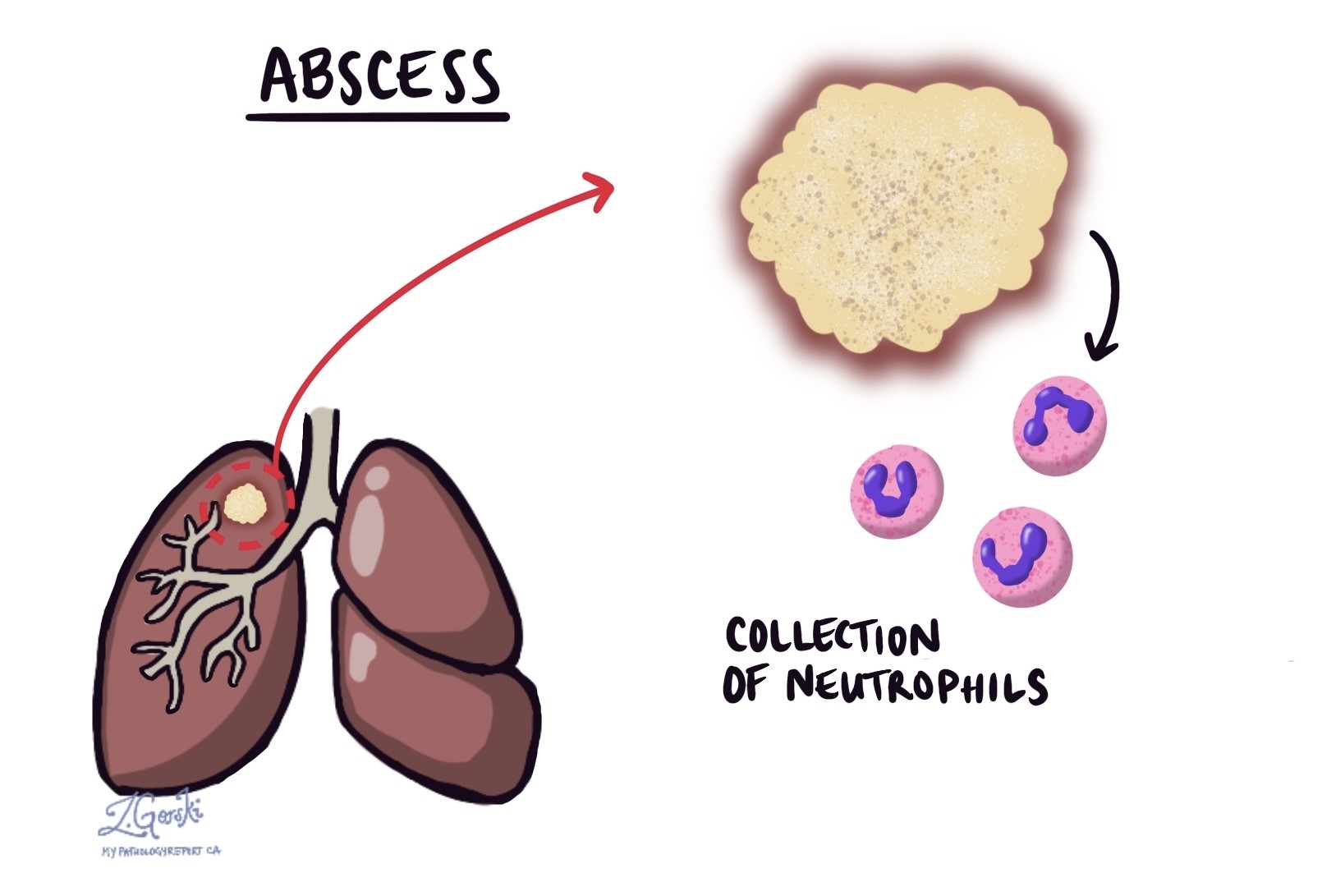
An abscess is a collection of immune cells, dead cells, and fluid that builds up in tissue. It usually forms when the body reacts to injury, infection, inflammation, or the presence of abnormal material such as tumor debris. An abscess often appears as a soft, swollen area that may contain thick yellow or green fluid called pus.
Most abscesses are made up of neutrophils, a type of white blood cell that plays an important role in the body’s immune response. Neutrophils are sent to the site of damage to help break down and remove harmful material. Other types of immune cells, such as lymphocytes and eosinophils, may also be present depending on the cause.
What causes an abscess?
An abscess can develop in response to several different conditions. While infection is a common cause, not all abscesses are caused by infection. Causes include:
-
Infection – Many abscesses are caused by bacteria or, less commonly, fungi. These infections may enter through a break in the skin or spread from another part of the body.
-
Trauma – Physical injury can lead to tissue damage and trigger an immune response that results in abscess formation, even if no infection is present.
-
Obstruction – Blocked glands, ducts, or hollow organs can trap fluid and lead to the buildup of immune cells and debris, forming an abscess.
-
Inflammatory conditions – Autoimmune diseases and chronic inflammatory conditions may lead to sterile (non-infectious) abscesses.
-
Tumors – An abscess can form in tissue surrounding a tumor. This may occur if the immune system reacts to the tumor or if the tumor releases material into nearby tissue, triggering inflammation.
What does an abscess look like under the microscope?
Under the microscope, an abscess appears as a dense cluster of neutrophils, often in the center of damaged or inflamed tissue. The area may also contain dead cells, debris, and fluid. Depending on the cause, other immune cells such as lymphocytes or macrophages may also be seen. In some cases, microorganisms like bacteria or fungi can be identified.
Why is an abscess important in a pathology report?
Finding an abscess in a tissue sample shows that the immune system is actively responding to something abnormal in the area. The pathologist will look for clues that help identify the cause, such as signs of infection, trauma, or a nearby tumor. Knowing what caused the abscess helps your doctor determine the best treatment, which may include medication or a procedure to drain the area.
Questions to ask your doctor
-
What caused the abscess in my case?
-
Was there any sign of infection or inflammation?
-
Is there a tumor or other condition nearby that may be related to the abscess?
-
Will I need treatment such as antibiotics or drainage?
-
Is this likely to happen again?



